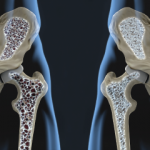It is well known that hip fractures are associated with significant morbidity and mortality: Mortality increases 15–25% in the year following a hip fracture.1–5 We know that treating osteoporosis prevents fractures and improves patient survival. But is there a relationship beyond this? Several studies have found that bisphosphonate therapy is associated with a reduction in…






